Parable of the month March: “Make someone else your agent”: an ambivalent picture of Moses
In the book of Exodus, Moses is depicted as a remarkably human figure, with occasionally low self-esteem, and doubts about his suitability as leader. This already starts in Exodus chapters 3 and 4, even at the burning bush. In Exodus 3:11 we read:
“Who am I that I should go to Pharaoh and free the Israelites from Egypt?
And in 4:1:
“What if they do not believe me and do not listen to me, but say: The Lord did not appear to you?
In Exod 4: 10:
“Please, O Lord, I have never been a man of words, either in times past or now that You have spoken to Your servant; I am slow of speech and slow of tongue.”
And, finally, in v. 13:
“Please, O Lord, make someone else Your agent.”
In verse 12 and 14 we read that God loses his patience and gets angry at Moses. Not a good start for a great leader, it would seem. And yet Moses is considered as the example of all leadership. How did that come to be? If we look at the earliest rabbinic Midrashim, we see that they depict Moses in an equally ambivalent way, and they even magnify his doubtful leadership qualities. A typical example is found in this parable from the Mekhilta
Therefore, the Holy One, blessed be He, pressed Moses for six days and on the seventh he said to Him, “Make someone else Your agent!” (Exod 4:13). As it says, “But Moses said to the Lord, ‘Please, Lord, I am not a man of words’” (Exod 4:10).
They told this parable. To what is the matter similar? To a king who had a servant and he loved him with a complete love. And the king sought to make him his administrator, to take care of the maintenance of the members of the king ’s palace. What did that king do? He took the servant by his hand and brought him into his treasury and showed him silver vessels and golden vessels, fine stones and gems and all that he had in his treasury. After this, he brought him outside and showed him trees, gardens, orchards and enclosed areas, and all that he had in the fields. Afterwards, the servant closed his hand and said: I cannot be made administrator to take care of the maintenance of the members of the king ’s palace. The king said to him: If you could not be made administrator, why did you put me through all this trouble? And the king was angry at him and decreed over him that he should not enter his palace.
So the Holy One, blessed be He, pressed Moses for six days and on the seventh he said to Him, “Make someone else Your agent!” (Exod 4:13). The Holy One, blessed be He, swore over him that he would not enter the Land of Israel. As is said: “Because you did not trust Me enough to affirm my sanctity in the sight of the Israelite people, therefore you shall not lead this congregation into the land that I have given them” (Num 20:12 ).
(Mekhilta de Rabbi Shimon bar Yohai, Sanya, to Exod 4:13. Translation David Nelson.)
The base text Exodus 4:10-13 is quoted in the beginning of the passage. Because of the repeated hesitations of Moses, the midrash concludes that God was pressing Moses for six days. This is not stated in the Bible: this is typical midrashic gap-filling.
The comparison in the mashal is rather straightforward: Moses is compared to a beloved servant who is chosen by the king to administer his household but, after a tour of the property, refuses to take up the job because he ‘cannot do it’. The king is angry because he has put in time and effort to prepare the servant for the job. Therefore he forbids the servant to enter his palace.
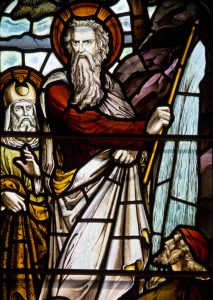 In the nimshal, this is reverted again to the relationship between God and Moses. Because Moses initially refuses to be God’s agent (Exod 4:13), he will not be allowed to enter the land. This interpretation adds something to the biblical text: in the Bible, Moses’ initial refusing to be the representative of his people is never adduced as the reason that he will not be allowed to enter the land. Rather, other reasons are given such as Moses’ (ambiguous) reaction to the people in Numbers 20:10 when he is about to strike a rock to bring out water on God’s command and Moses says: “Listen, you rebels, shall we get water for you out of this rock?” God’s reaction to this in Num 20:12 is quoted at the end of our text: “Because you did not trust Me enough to affirm my sanctity in the sight of the Israelite people, therefore you shall not lead this congregation into the land that I have given them” (Num 20:12 ). Thus, Numbers 20:10-12 is connected with the situation in Exod 4, whereas in the biblical text these events are unrelated. This is again the typical gap-filling and connecting of passages that we often find in rabbinic midrash.
In the nimshal, this is reverted again to the relationship between God and Moses. Because Moses initially refuses to be God’s agent (Exod 4:13), he will not be allowed to enter the land. This interpretation adds something to the biblical text: in the Bible, Moses’ initial refusing to be the representative of his people is never adduced as the reason that he will not be allowed to enter the land. Rather, other reasons are given such as Moses’ (ambiguous) reaction to the people in Numbers 20:10 when he is about to strike a rock to bring out water on God’s command and Moses says: “Listen, you rebels, shall we get water for you out of this rock?” God’s reaction to this in Num 20:12 is quoted at the end of our text: “Because you did not trust Me enough to affirm my sanctity in the sight of the Israelite people, therefore you shall not lead this congregation into the land that I have given them” (Num 20:12 ). Thus, Numbers 20:10-12 is connected with the situation in Exod 4, whereas in the biblical text these events are unrelated. This is again the typical gap-filling and connecting of passages that we often find in rabbinic midrash.
Why do the Rabbis hush up the fact that Moses was not allowed to go in because he was angry at the people, or because he claimed ownership over a miracle, whereas in fact only God can do miracles? None of this is found the tannaitic Midrashim: they present him as a very human and humble, even unsecure leader, who does not receive the reward he so much hoped for: to enter the land. In his recent book about Moses in the Rabbinic tradition[1] Gunter Stemberger explains this in the following way:
“The image of the leadership of Moses is not only based on the biblical image, but also on the presuppositions of the rabbis about how an ideal leader of the Jewish community should act. Because these were themselves usually not yet in a leadership position, they were interested in a conciliatory, service-minded community leader, who does not become angry, who does not follow his own interests, who is not authoritarian. All this may have played on the background of the passive image that Moses has in rabbinic literature”.

Lieve Teugels
[1] G. Stemberger, Mose in der rabbinischen Tradition, Freiburg in Bresgau: Herder, 2016, 184-185. English translation of the section by Lieve Teugels.


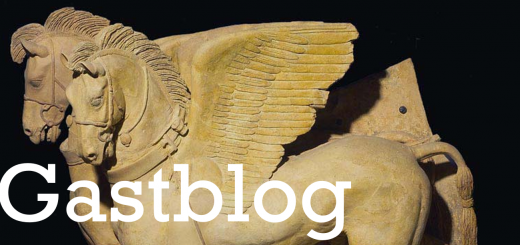


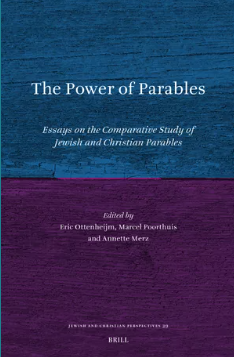

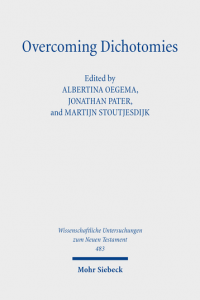

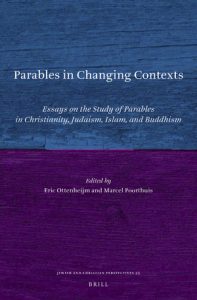
Recente reacties